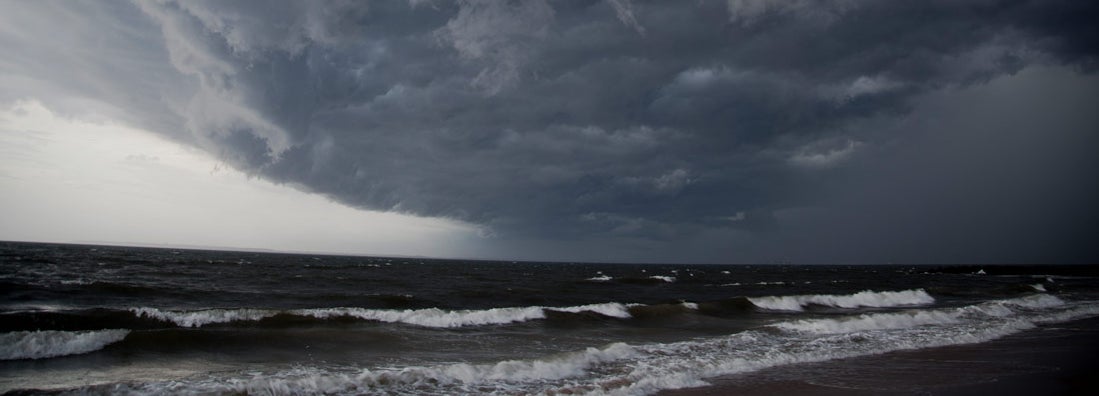Connecticut Hurricane Insurance
An independent agent can help you find the right hurricane insurance policy to protect you.

Connecticut is a beautiful state, situated along the Atlantic Ocean, with more than 600 miles of coastline. While the state has prime locations for ocean fishing and water activities, it's also vulnerable to devastating hurricanes. Connecticut has seen its fair share of hurricanes through the years, so knowing the basics of hurricane insurance is important, especially before a hurricane strikes.
To make sure you have coverage, contact a local independent insurance agent to get information about hurricane preparedness and to get quotes for an insurance policy.
Connecticut Hurricane Facts
Here is a list of just a few of the worst hurricanes to affect Connecticut:
- 1972 - Tropical Storm Agnes caused 122 deaths and more than $6 billion in damage (adjusted for inflation).
- 1985 - Hurricane Gloria caused more than $1 billion in damage, although experts say if hit had struck at high tide, it would have been "The Storm of the Century."
- 2011 - Hurricane Irene destroyed homes throughout Connecticut, causing more than $15.6 billion in damage nationwide.
- 2012 - Hurricane Sandy caused more than $50 billion in damage, even affecting Connecticut.
CT and the surrounding New England area are a hotspot for hurricanes. All CT residents should have a disaster plan in place in order to prepare for these devastating storms.
What Is Hurricane Insurance?
Hurricane insurance isn't really a separate policy. If a hurricane is the cause of damage to your home, your homeowners insurance may cover it or may not. If wind, rain or debris causes damage, your homeowners insurance should cover it, less the deductible. Almost always, if there is home damage specifically caused by a hurricane and not just a wind or rainstorm, there is a specific hurricane deductible written into the policy. Typically, the deductible is a percentage of the total damage from the storm. This deductible percentage could range from 3 to 5 percent. You can compare quotes before you buy to make sure the homeowners insurance you're selecting has the lowest possible deductible and the best possible coverage.
If flooding causes the damage, your homeowners insurance will not cover the damage. The only way to get coverage for damage caused by flooding is to have a flood insurance policy from the NFIP in place.
The law may require homeowners insurance where you live, in addition to mortgage lenders requiring it. The law may also require flood insurance, so be sure to talk to your lender before purchasing a home in Connecticut.
What Does Hurricane Insurance Cover?
Once you pay your deductible, your hurricane insurance coverage will cover damage from wind, rain, lighting and debris. There are typically two types of coverage:
- Dwelling coverage: This covers the dwelling itself, including attached buildings like a garage.
- Possessions coverage: This covers possessions including furniture, appliances and belongings.
Some insurance policies will require a separate deductible for each type of coverage. Once you pay the deductible, your insurer will reimburse you for the remainder of the damage. There are two forms of reimbursement to choose from when purchasing your policy:
- Actual cash value: Actual cost value, or ACV, will replace the item at its original cost less depreciation.
- Replacement cost value: Replacement cost value, or RCV, will replace the item with a comparable item, without considering depreciation.
It's very important to talk with your current homeowners insurance company to be sure that you have coverage against hurricane damage and that your coverage is sufficient to cover the total value of your belongings. This is another area where collecting quotes before you buy is a good idea - understanding how much you have to insure will help you get a baseline for coverage limits. From there, you can just find the lowest cost policy to buy.
Be sure to take a home inventory, writing down serial numbers, taking photographs of expensive items and getting an accurate total. Typically, you will want to double this total to be sure you have complete coverage.
What About Flood Insurance?
The NFIP offers flood insurance, which all insurance agents sell to the public. The following factors determine your insurance quotes and ultimate cost:
- Your home's value
- The value of your possessions
- Your home's location
- Type of home
- The age of your home
- The number of floors in your home, including basements
A typical flood insurance policy will offer the following:
- Standard flood insurance – dwelling: This is the most typical type of coverage. It insures up to four single-family residential buildings or single-family units in a condominium or townhouse.
- General property: This insurance covers five or more single-family residential buildings and non-residential buildings.
- Residential condominium building association: If you're a landlord, this coverage is for you. It includes coverage for townhomes and condominiums.
Standard dwelling coverage has two options:
- Building property coverage: Covers up to $250,000 in damage
- Personal property coverage: Covers up to $100,000 in damage
What About Hurricane Damage to Your Car, Boat or RV?
In order to have your vehicles and boats covered against flood or hurricane damage, you'll need to get comprehensive insurance, which covers nearly everything that could damage your vehicles except a collision.
Your lender may require you to carry comprehensive insurance in order to secure a loan.
Let an Agent Help You Get Coverage
Making sure your home and possessions have coverage in the event of a hurricane can be confusing. Different coverage options and deductibles can perplex even the most well-informed homeowner. Whether you're looking for new homeowners insurance quotes or flood insurance, or you have hurricane insurance questions, a Trusted Choice® agent is always available to help you.
Contact a local independent agent for help whether you need coverage or just need more information.
